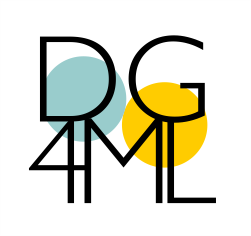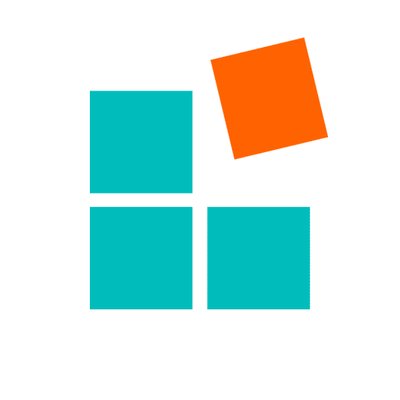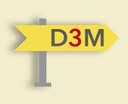Projects
DOGO4ML (Spanish Program)
 Title: Development, Operation and Data Governance for ML-based Software Systems. (DOGO4ML)
Title: Development, Operation and Data Governance for ML-based Software Systems. (DOGO4ML)
Identifier: PID2020-117191RB-I00/ AEI/10.13039/501100011033
Dates: September 2021 - July 2025
Participation: Joint project with the DTIM research group
Goal: DOGO4ML proposes a holistic end-to-end framework to develop, operate and govern ML-based Software Systems and their data.
GLiDE: Integrated Gamified Learning Dashboard Environment
Title: Integrated Gamified Learning Dashboard Environment (GLiDE)
Funding Entity: Universitat Politècnica de Catalunya (Call for grants to carry out teaching improvement and innovation projects Galàxia Aprenentatge 2023). The project was granted under the Catalan title "Introducció d' elements de ludificació a l'eina Learning Dashboard per millorar l'aprenentatge en assignatures basades en el desenvolupament en equip de projectes software" as it appears in the call's resolution.
Dates: May 2023 - July 2024
Participation: Carles Farré (coordinator), Xavier Franch, Lidia López, and Marc Oriol
Goal: This project aims to enhance the user experience and introduce gamification elements into the Learning Dashboard. This intervention is expected to have a positive impact on student motivation and engagement, team collaboration and cohesion, project performance, and the quality of the artifacts produced while working on Software Engineering projects.
GAISSA (Spanish Program)
Title: Towards green AI‐based software systems: an architecture‐centric approach (GAISSA)
Identifier: TE D2021-130923B-I00
D2021-130923B-I00
Dates: December 2022-November 2024
Participation: GESSI members
Goal: The GAISSA project aims at providing data scientists and software engineers tool-supported, architecture-centric methods for the modelling and development of green AI-based systems and thus facilitate the ecological transition towards energy-efficient software systems.
ML-EnergyLabel (LLAVOR UPC)
Title: Generation of energy labels for certifying the efficiency of machine learning systems (ML-EnergyLabel)
Funding Entity: LLAVOR-UPC 24 - 747000-F22916. Technology transfer.
Amount: 12.500€
Dates: March - October 2024
Participation: Silverio Martínez-Fernández (principal investigator), Santiago del Rey (entrepreneurial scientist), Joel Castaño, Sonia Touriño
Mentor: Jordi Daunis
Goal: Study the viability of tool‐supported energy labels for certifying ML systems.
Learning Dashboard

Title: Learning Dashboard
Dates: Started on September 2021
Participation: Project coordinators Prof. Carles Farré and Prof. Xavier Franch
Goal: To gather data generated by the software development tools used by students, mainly code version management and project management tools, in order to define learning metrics, factors, and indicators that are integrated, visualized, and monitored in an analytic dashboard.
GESSI - NLP4SRE

Title: GESSI - NLP4SRE
Dates: Started on January 2021
Participation: Project coordinators Prof. Xavier Franch, Prof. Jordi Marco and Quim Motger
General Goal
Analyse and extend the scope of NLP techniques focused on supporting software and requirements engineering tasks with a particular focus on (1) requirements elicitation and release planning, (2) knowledge base generation of NLP-based software-related artefacts, and (3) user feedback analysis.
Context and Motivation
Software repositories, including software marketplaces, issue trackers and indexation services, offer a large-scale, continuously evolving catalogue of software applications and software-related NLP artefacts, including official documentation and descriptions from developers, changelogs, user reviews, and feature or bug reports. In certain contexts, like mobile applications or AI-based software products, several challenges emerge from the continuous evolution of these products. From the developer perspective, it becomes challenging to integrate effectively user feedback, both for the evolution and maintenance of their own applications as well as to keep track of the competitive landscape. From the user perspective, it becomes complex to keep track of the last, up-to-date trends on a specific market segment. The constant appearance of new products makes it challenging to analyze and select those products that better suit the user needs. However, these NLP artefacts offer a wide research opportunity to effectively and autonomously exploit user feedback to support multiple software and requirements engineering tasks. These include requirements elicitation, release planning, continuous integration, user feedback analysis and competition analysis.
In this project, we explore state-of-the-art methods and techniques in the field of NLP and we extend the scope of software engineering practices by effectively integrating these NLP tasks to improve current practices in the field.
Contact
joaquim.motger (at) upc.edu
Publications
- ACM Comput. Surv., 55(5): 91:1–91:42. 2023.
- IEEE Trans. Software Eng., 49(4): 2128–2148. 2023.
- In Abelló, A.; Vassiliadis, P.; Romero, O.; Wrembel, R.; Bugiotti, F.; Gamper, J.; Vargas-Solar, G.; and Zumpano, E., editor(s), New Trends in Database and Information Systems - ADBIS 2023 Short Papers, Doctoral Consortium and Workshops: AIDMA, DOING, K-Gals, MADEISD, PeRS, Barcelona, Spain, September 4-7, 2023, Proceedings, volume 1850, of Communications in Computer and Information Science, pages 269–279, 2023. Springer
- In Cabanillas, C.; and Pérez, F., editor(s), Intelligent Information Systems - CAiSE Forum 2023, Zaragoza, Spain, June 12-16, 2023, Proceedings, volume 477, of Lecture Notes in Business Information Processing, pages 95–102, 2023. Springer
- In Ferrari, A.; Penzenstadler, B.; Hadar, I.; Oyedeji, S.; Abualhaija, S.; Vogelsang, A.; Deshpande, G.; Rachmann, A.; Gulden, J.; Wohlgemuth, A.; Hess, A.; Fricker, S.; Guizzardi, R. S. S.; Horkoff, J.; Perini, A.; Susi, A.; Karras, O.; Dalpiaz, F.; Moreira, A.; Amyot, D.; and Spoletini, P., editor(s), Joint Proceedings of REFSQ-2023 Workshops, Doctoral Symposium, Posters & Tools Track and Journal Early Feedback co-located with the 28th International Conference on Requirements Engineering: Foundation for Software Quality (REFSQ 2023), Barcelona, Catalunya, Spain, April 17-20, 2023, volume 3378, of CEUR Workshop Proceedings, 2023. CEUR-WS.org
- In Ferrari, A.; Penzenstadler, B.; Hadar, I.; Oyedeji, S.; Abualhaija, S.; Vogelsang, A.; Deshpande, G.; Rachmann, A.; Gulden, J.; Wohlgemuth, A.; Hess, A.; Fricker, S.; Guizzardi, R. S. S.; Horkoff, J.; Perini, A.; Susi, A.; Karras, O.; Dalpiaz, F.; Moreira, A.; Amyot, D.; and Spoletini, P., editor(s), Joint Proceedings of REFSQ-2023 Workshops, Doctoral Symposium, Posters & Tools Track and Journal Early Feedback co-located with the 28th International Conference on Requirements Engineering: Foundation for Software Quality (REFSQ 2023), Barcelona, Catalunya, Spain, April 17-20, 2023, volume 3378, of CEUR Workshop Proceedings, 2023. CEUR-WS.org
- CoRR, abs/2312.01981. 2023.
-
In Cherfi, S. S.; Perini, A.; and Nurcan, S., editor(s), Research Challenges in Information Science - 15th International Conference, RCIS 2021, Limassol, Cyprus, May 11-14, 2021, Proceedings, volume 415, of Lecture Notes in Business Information Processing, pages 347–355, 2021. Springer
Icons designed by Freepik from www.flaticon.es.
RE State-of-the-Practices Study

Title: State-of-the-Practice in Requirements Elicitation, Specification and Reuse
Dates: Started on November 2014
Participation: Twelve European companies in different sectors involving 24 senior experienced practitioners.
Goal: Surveying the state of the practice with regards to requirements elicitation, specification and reuse in companies. Empirical study based on interviews with companies dealing with requirements.
Past FP7 and H2020 Research Projects
OpenReq (H2020)
 Title: Intelligent Recommendation & Decision Technologies for Community-Driven Requirements Engineering
Title: Intelligent Recommendation & Decision Technologies for Community-Driven Requirements Engineering
Identifier: contract No. 732463; E-01376
Dates: January 2017 - December 2019
Participation: Work package leader
Goal: Develop, evaluate, and transfer highly innovative methods, algorithms, and tools for community-driven Requirements Engineering in large and distributed software-intensive projects.
Q-Rapids (H2020)
 Title: Quality-aware Rapid Software Development
Title: Quality-aware Rapid Software Development
Identifier: contract No. 732253; E-01372
Dates: November 2016 - October 2019
Participation: Project coordinator
Goal: Improve software quality levels; Increase software life cycle productivity; Shorten software time to market.
SUPERSEDE (H2020)
 Title: SUpporting evolution and adaptation of PERsonalized Software by Exploiting contextual Data and End-user feedback
Title: SUpporting evolution and adaptation of PERsonalized Software by Exploiting contextual Data and End-user feedback
Identifier: contract No. 644018; E-01318
Dates: May 2015 - April 2018
Participation: Work package leader
Goal: Deliver methods and tools to support decision-making in the evolution and adaptation of software services and applications by exploiting end-user feedback and runtime data, with the overall goal of improving end-users’ quality of experience.
RISCOSS (FP7)
 Title: Managing Risk and Costs in Open Source Software Adoption
Title: Managing Risk and Costs in Open Source Software Adoption
Identifier: contract No. 318249
Dates: November 2012-October 2015
Participation: Project coordinator
Goal: Clear definition of the roles, tasks, documents, etc., that are implied in business models and business processes around OSS-based development and distribution. Definition of guidelines, methods and strategies to manage the risk and leverage the costs in OSS adoption.
Other Past European Networks, Collaborations and Projects
VISDOM (ITEA3)
 Title:VISDOM: Visual diagnosis for DevOps software development
Title:VISDOM: Visual diagnosis for DevOps software development
Identifier: project Nr. 17038; C-11420
Dates: October 2019 - June 2022
Participation: Subcontracted partner
Goal: The VISDOM project will develop new types of visualisations that utilise and merge data from several data sources in modern DevOps development. The aim is to provide simple “health check” visualisations about the state of the development process, software and use.
RE-Pract
 Title: What practitioners think about requirements engineering research
Title: What practitioners think about requirements engineering research
Dates: November 2015 - December 2020
Participation: Project coordinators Prof. Xavier Franch and Prof. Daniel Mendez (Technische Universität München)
Goal: Provide practitioners with the possibility to add their own views and flavours regarding current research in RE. Discover the lines of current research that are more promising for practitioners. Identify the topics and areas of future research (or fine-tune existing ones) in RE.
Estimating effort for QR
Title: Technique to estimate the effort to implement a quality requirement in agile software developments (Técnica para estimar el esfuerzo de implementación de un requisito de calidad en desarrollos ágiles de software)
Dates: January 2019 - February 2020.
Participation: Joint project with Universidad de Medellin. UPC team is composed of: María José Salamea (PhD student), Dr. Carles Farré, Dr. Marc Oriol and Prof. Xavier Franch (Supervisor).
Goal: This project aims at studying and defining a technique for estimating the effort required in the implementation of quality requirements in the context of agile software development.
NFR4MDD
 Title: How do companies deal with NFR in MDD
Title: How do companies deal with NFR in MDD
Dates: December 2014 - March 2019
Participation: Six European research teams from six different countries working under the supervision of the GESSI research group
Goal: Surveying the state of the practice of NFR in MDD in companies. Multi-national empirical study, based on interviews with companies working on MDD projects.
SACRE
Title: Smart Adaptation through Contextual REquirements
Dates: January 2015 - June 2019.
Participation: Collaborative project that is constantly integrating new partners. UPC team: Edith Zavala (GESSI PhD student), Prof. Xavier Franch (Supervisor) and Dr. Jordi Marco (Co-supervisor)
Goal: The SACRE project aims at dealing with this challenging situation supporting the adaptation of contextual requirements affected by runtime uncertainty in modern self-adaptive systems.
SALI
 Title: SmArt seLf-driving vehIcle
Title: SmArt seLf-driving vehIcle
Identifier: Open Research at AstaZero program (call 4 - 20180430, application A-0034)
Dates: July 2018 - October 2018
Participation: Project leaders Edith Zavala (GESSI PhD student) and Dr. Christian Berger (Univeristy of Gothenburg). Supervisors Prof. Xavier Franch and Dr. Jordi Marco.
Goal: The SALI project aims at providing an open software engineering solution to integrate self-* capabilities such self-healing, self-optimization and self-improvement to self-driving vehicles for responding to runtime challenging factors such as unpredictability, faults and limited resources.
S-CUBE (Network of Excellence at FP7)
Title: Associate Member at the Software Services and Systems Network
Identifier: contract No. 215483
Dates: March 2008 -February 2012
Web page: http://www.s-cube-network.eu/
ADOxx (Acciones Integradas programme)
Title: Definition of the i* format by using the metamodel compiler ADOxx v1.0
Identifier: AT2009-0015
Dates: January 2010 -December 2011
SODA (ITEA programme)
Title: Service Oriented Device & Delivery Architecture
Identifier: ITEA 05022
Dates: January 2006 -December 2008
Web page: https://itea3.org/project/soda.html
MSDS (Acciones Integradas programme)
Title: Requirements Engineering for Multi-Stakeholder Distributed Systems
Identifier: HU2005-0021
Dates: January 2006 - December 2007
WG-ECUA (Working Group at FP5)
Title: EuropeAn COTS User Working Group
Identifier: IST-2000-26436
Dates: January 2001 - October 2002
Web page: https://cordis.europa.eu/project/rcn/53157_en.html
Other Past Networks and Spanish Program Projects
D3M (Spanish Program)
Title: Automated Data-Driven Decision Making (D3M)
Identifier: P DC2021-121195-I00
DC2021-121195-I00
Dates: December 2021 – November 2023
Participation: Joint project with the DTIM research group
Goal: D3M (Data-Driven Decision Making) addresses the current challenge of democratizing the access to independent data sources to gain deeper analytical insights via automatic data integration and domain-specific decision making.
CALESI (Network)
Title: Network of Excelence in Software Quality and Sustainability
Identifier: TIN2017‐90689‐REDT
Participation: GESSI is one of the research groups members of the network, that is coordinated by Silvia Abrahão of the Universitat Politècnica de València
Goal: To exchange knowledge among the networt members of theories, practices and methods within different approaches to develop a common understanding of fundamental research issues to integrate Software Quality and Sustainability and identify and a joint research agenda. To consolidate, unify and disseminate knowledge about software quality and sustainability encouraging the development and use of new techniques and methodologies to ensure the quality and sustainability of products and software development processes in heterogeneous and distributed environments;
Dates: July 2018 - September 2021
RCIS (Network)
Title: Network on Service Science and Engineering
Identifier: TIN2016-81978-REDT
Dates: July 2017 - November 2021
Participation: GESSI is one of the research groups members of the network, which is coordinated by Antonio Ruíz from the Universidad de Sevilla
Goal: (1) Optimizing the results and resources of the groups that make up the network through the identification, sharing and reuse of knowledge and research resources (use cases, tools, experiments, etc.) developed. (2) To jointly explore the challenges opened up by advances in Cloud Computing, intelligent devices and social computing on which the team is already working network researcher. (3) Facilitate the access of other researchers and society in general to the software developed by the members of the network, and provide evidence about the actual use of said software as an indirect measure of its impact.
GENESIS (MINECO)
 Title: Generation and Evolution of Smart APIs
Title: Generation and Evolution of Smart APIs
Identifier: TIN2016-79269-R, J-02247.
Dates: December 2016 - December 2020
Participation: Joint project with the DTIM research group
Goal: Provide techniques and tools to: collect information, metadata and behaviour of the functionality to expose provided by API providers; generate a repository of monitorizable APIs with their documentation, metadata and implementation; automatically manage data flows and data repositories to implemente the APIs; propose and evaluate API evolutions; facilitate the automatic evolution of APIs.
Reactive Plan (AGAUR - Llavor)
Title: Reactive Plan: A Tool for Continuous Software Release Planning
Project co-funded by the European Regional Development Fund (ERDF - FEDER) of the European Union under the "Programa operatiu FEDER de Catalunya 2014-2020" with an aid of € 20,000€
Identifier: 2016LLAV00009
Dates: July 2017 - April 2018
Description: Reactive Plan focuses on the reinforcement of the connection between software development and release planning activities. Software development is the task of producing the implementation of the software (e.g., writing the source code) while release planning is deciding what is to be implemented, when and by whom. In order to fully support the continuous planning of releases, the Reactive Plan tool will: 1) monitor the real progress of the ongoing release (by connecting with developer tools like JIRA or Slack); and 2) re-plan the current release when necessary (e.g., some activity is delayed or a developer takes a sick leave). Participants: David Ameller, Carles Farré, Quim Motger
EOSSAC (Spanish Program)
Title: Engineering Open Source Services and Apps for the Citizens
Identifier: TIN2013-44641-P; J-1890
Dates: January 2014 - December 2016
RCIS (Network)
Title: Red en Ciencia e Ingeniería de Servicios
Identifier: TIN2014-53986-REDT
Dates: January 2015 - December 2016
ProS-Req (Spanish Program)
Title: Requirement-based production of service-oriented software
Identifier: TIN2010-19130-C02-00
Dates: January 2011 - December 2013
Participation: Coordinated project with ProS
IQMNet (Network)
Title: Red para la Gestión de la Calidad de la Información
Identifier: TIN2010-09809-E
Dates: January 2011 - December 2013
RedCis (Network)
Title: Red Científico-Tecnológica en Ciencias de los Servicios
Identifier: TIN2011-15497-E
Dates: September 2012 - August 2013
Red Integración (Network)
Title: Red de Investigación sobre Integración de Aplicaciones e Información Empresarial
Identifier: TIN2010-09988-E
Dates: January 2011 - December 2011
ADICT (Spanish Program)
Title: Acquisition, Development, Integration and Customization of Heterogeneous Components for Information Systems
Identifier: TIN2007-64753
Dates: October 2007 - December 2010
UPIC (Spanish Program)
Title: Towards a Unified framework for the Procurement and Implementation of information system Components
Identifier: TIN2004-07461-C02-00
Dates: December 2004 - December 2007
DALÍ (Spanish Program)
Title: Methodologies and tools for the Development, Acquisition, evaLuation and Integration of software components
Identifier: TIN2001-2165
Dates: December 2001 - December 2004
Share: